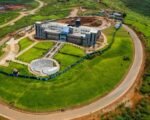The French cycling team, which is one of the most successful and decorated teams in the history of the Olympic Games, is aiming for more glory at the Tokyo 2020 Olympics, which will take place in July and August 2023. To achieve this goal, the team has partnered with various scientific and technological institutions and experts, to optimize its performance and equipment, and to gain a competitive edge over its rivals.
The partnership, which started in 2017, involves the French National Institute of Sport, Expertise and Performance (INSEP), the French Alternative Energies and Atomic Energy Commission (CEA), the French National Center for Scientific Research (CNRS), and the French Aerospace Lab (ONERA). These institutions and experts provide the team with various services and solutions, such as biomechanical analysis, aerodynamic testing, material engineering, and data processing.

The partnership is based on the principle of co-innovation, which means that the team and the scientists work together to identify the problems and the solutions, and to share the knowledge and the feedback. The partnership also respects the ethical and environmental values of the team and the Olympics, and does not use any illegal or harmful methods or substances.
A Focus on Three Key Areas: The Bike, The Rider, and The Track
The partnership between the team and the scientists focuses on three key areas that can influence the outcome of the cycling events: the bike, the rider, and the track. Each area has its own challenges and opportunities, and requires a specific approach and expertise.
The bike is the main tool and weapon of the cyclist, and it has to be as light, fast, and reliable as possible. The scientists help the team to design and improve the bike, by using advanced materials, such as carbon fiber and titanium, and by testing and optimizing the aerodynamics, the stiffness, and the stability of the bike. The scientists also help the team to monitor and maintain the bike, by using sensors, cameras, and software, to collect and analyze the data on the bike’s performance and condition.
The rider is the main actor and factor of the cycling events, and he or she has to be as fit, strong, and efficient as possible. The scientists help the team to train and prepare the rider, by using biomechanical analysis, physiological testing, and nutritional advice, to measure and improve the rider’s physical and mental abilities and health. The scientists also help the team to support and coach the rider, by using wearable devices, such as heart rate monitors and GPS trackers, to track and communicate the rider’s status and strategy.
The track is the main stage and challenge of the cycling events, and it has to be as familiar, favorable, and adaptable as possible. The scientists help the team to study and simulate the track, by using geographical data, climatic data, and mathematical models, to predict and reproduce the track’s features and conditions. The scientists also help the team to adjust and optimize the track, by using artificial intelligence, machine learning, and optimization algorithms, to find and apply the best parameters and settings for the track.
A Positive Impact on the Team’s Performance and Results
The partnership between the team and the scientists has had a positive impact on the team’s performance and results, as evidenced by the team’s achievements and records in the past few years. The team has won several medals and titles at the world championships, the European championships, and the World Cups, and has broken several world records in various cycling disciplines, such as the team sprint, the team pursuit, and the individual pursuit.
The team hopes to continue this success and momentum at the Tokyo 2020 Olympics, where it will face strong competition from other teams, such as Great Britain, Australia, and Germany. The team has set high expectations and ambitions for the Olympics, and aims to win at least five medals, including two gold medals, in the track cycling events. The team also hopes to inspire and impress the fans and the public, and to promote the values and the spirit of the Olympics.








